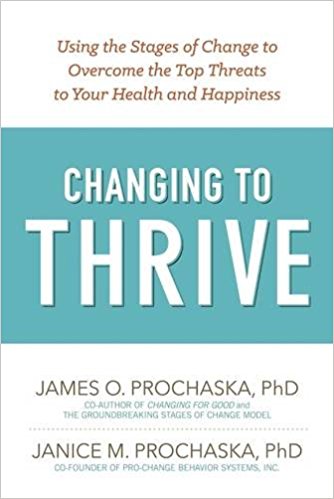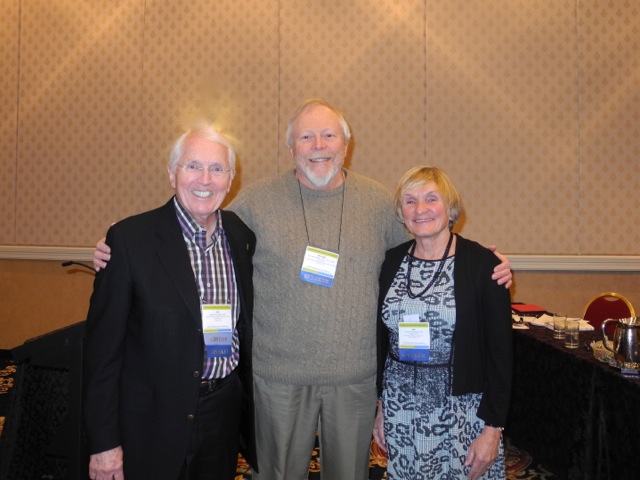Coaching a Client Through To A Mental Health Referral Using The Stages of Change

Times arise when it becomes apparent to a wellness coach that their client would benefit from working with a mental health professional. The need for referral may be urgent and involve client safety as when there is a threat of harm to self or others. That rare situation is usually more clearly recognized, referral is made and coaching is usually terminated. (“Top Ten Indicators to Refer a Client to a Mental Health Professional.” This can be found in the Wellness Resources section of the Real Balance website:https://www.realbalance.com/wellness-resources ) (See also this previous post: The Wellness Coach And Referring Clients To A Mental Health Professional: PART ONE – WHEN (http://wp.me/pUi2y-bA) )
More common is the situation where the client raises issues where there is no immediate danger or threat, but rather, there is either a history of unfinished emotional issues, or there are current circumstances that are creating barriers for the client’s effectiveness at succeeding at lifestyle improvement. In such situations, having a thorough working knowledge of the difference between coaching and therapy is essential for a professional coach. The best possible resource for this is this article by Meg Jordan and John Livingstone (https://www.realbalance.com/wellness-resources).
Resolution Vs. Relevance
 How is the past affecting the present?
How is the past affecting the present?
The first step would be for the coach to explore with the client to see if they are currently in therapy for these kinds of issues, or have been in the past. Then, the coach and client may be able to explore if they can coach about these issues, not to resolve them, but to see how they obstruct progress in the client’s efforts at lifestyle improvement. Can they be accounted for and worked with in coaching, or are the challenges so great that they will actually prevent progress in the coaching?
Well-trained coaches can do process coaching. The key here is to seek how the emotions of the client are relevant to the progress they are attempting to achieve in coaching. Perhaps a client repeatedly holds themselves back from engaging in the wellness/self-care activities that the coach and client create as action steps in their wellness plan. As this is discussed an internal barrier is identified that traces back to their family of origin. Perhaps a critical parent harshly enforced that all work must be done before one does anything for one’s self. Now, the goal of doing process coaching around this is not the resolution of all of the feelings and unfinished business with that parent (be they dead or alive). Instead, it is to gain insight regarding how these past learning’s are holding them back today. If the client is able to gain such insight and translate it into action (moving ahead with self-care) then the process coaching is achieving its goal. If the client continues to only process feelings and does not gain insight or does not succeed in shifting their behavior, then, we have probably identified an issue that is significant enough to warrant the encouragement of referral to a counselor or therapist.
In such cases or if the issues are beyond the scope of coaching and are interfering with client progress, then exploring making a referral needs to begin. How to make this referral successfully is not as simple as explaining the benefits of therapy and providing resource information. Very often clients are ambivalent, or even outright resistive to a referral to a mental health professional. The thought of reconnecting with all of the unpleasant emotion involved in working directly on their issues in therapy brings up fear. Unfortunately, coaches sometimes drop such a client quickly when they are not ready to jump into action and seek out the therapy they would benefit from. This is where a client would benefit from a coach who implements a Stages of Change approach (The Transtheoretical Model of Change developed by James Prochaska).
 In the new book by James and Janice Prochaska Changing To Thrive (https://www.prochange.com/uncategorized/2017/02/prochaskas-new-book-changing-thrive-published), they make the point that most of the people we all work with are not in the action stage of change on any particular behavior. They estimate that only about 20% are actually ready to jump into action. Why would this be any different when it comes to engaging in counseling or psychotherapy? Yet, so often, when the client balks at following through on a psychological referral, coaching is abandoned. Instead, think of it as our job to help the person to weigh the pros and cons of engaging in counseling as they sit in the Contemplation Stage of Change. We are helping them with Decisional Balance. Taking a page from Motivational Interviewing, we coach as they work through their Ambivalence. We want to “roll with resistance” instead of accepting it as a rejection of our referral recommendation.
In the new book by James and Janice Prochaska Changing To Thrive (https://www.prochange.com/uncategorized/2017/02/prochaskas-new-book-changing-thrive-published), they make the point that most of the people we all work with are not in the action stage of change on any particular behavior. They estimate that only about 20% are actually ready to jump into action. Why would this be any different when it comes to engaging in counseling or psychotherapy? Yet, so often, when the client balks at following through on a psychological referral, coaching is abandoned. Instead, think of it as our job to help the person to weigh the pros and cons of engaging in counseling as they sit in the Contemplation Stage of Change. We are helping them with Decisional Balance. Taking a page from Motivational Interviewing, we coach as they work through their Ambivalence. We want to “roll with resistance” instead of accepting it as a rejection of our referral recommendation.
 Coach THROUGH to referral!Coach: So, I hear your hesitance when I suggest that counseling might be the best way forward with this.
Coach THROUGH to referral!Coach: So, I hear your hesitance when I suggest that counseling might be the best way forward with this.
Client: Well, yes. I’ve been in counseling before and I don’t know if I want to open up that whole issue again.
Coach: Sounds like you possibly have some fear about talking about such uncomfortable subjects again.
Client: Yeah. Growing up in my home was not a pleasant thing!
Coach: I know it holds a lot of negative memories for you. You’ve shared some stories about how bad it was. Yet, I also hear you saying that it’s frustrating to have these things hold you back from doing what you want to do today to be healthy and well.
Client: Right! It’s really frustrating! I know I need to get more active and take more time to eat right, but then I feel so guilty when I take time for myself.
Coach: So, on the one hand you really want to make these improvements to your lifestyle, but when you attempt to do so, these barriers, these thoughts get in the way.
Client: Exactly! I appreciate your help, but it seems like whenever we set up action steps, I never follow through on them, even though I know I need to.
Coach: Yes, we’ve explored how it’s all related, but we still seem stuck. What do you think would be the benefits if you did get back into counseling about this?
Client: Well, I guess I could really open up about it and try to unload some of this frustration. I’m just so tired of having the past hold me prisoner!
Coach: So a counselor could actually help you explore that and really make some progress in this area, perhaps result in some relief.
Client: Yeah. Okay. So what’s next?
Coach: Well, let’s work together on reconnecting you with some counseling. Let’s see what steps you can take to find the resources you need.
In this example the coach meets the client where they are. They help their client to Contemplate the idea of returning to counseling. Acknowledging the client’s fears and validating their feelings, the coach helps the client to begin to weigh the reasons to return to counseling and the reasons to avoid it. The family of origin stories are referenced, but not delved into. Instead, the emphasis is on relevance. How the past is getting in the way of the present is the essence of the contemplation. Then, at the end of the example we begin to move into the next Stage of Change; Preparation.
Coaching works because we are the client’s ally through the whole behavior change process. When referral comes up, we remain their ally. Then to help them actually follow through and make it to the referral resource, we help them with the process of identifying such resources, making the appointment, and attending the appointment. We offer support and accountability with all of the action steps required to achieve this preparation. We acknowledge the courage, the valuing of one’s self that is required for each step along the way.
 James & Janice Prochaska with Michael Arloski
James & Janice Prochaska with Michael Arloski
Take what you know about the Transtheoretical Model of Change (Stages of Change) and apply it to the referral process. Be your client’s ally when they need you the most.
SPECIAL ANNOUNCEMENT: James and Janice Prochaska will be Dr. Arloski's guests on the Real Balance Free Monthly Webinar - May 26 at Noon Eastern Time. This will be a special one-hour webinar where the Prochaska's will be sharing their breakthrough work from their new book CHANGING TO THRIVE.
"Changing To Thrive: Using the Stages of Change to Overcome the Top Threats To Your Health and Happiness" An Interview with James and Janice ProchaskaRegistration URL: Registration URL: https://zoom.us/webinar/register/bd820be2db187da1c5b9141539e44ee6








Only registered and logged in readers can leave comments.